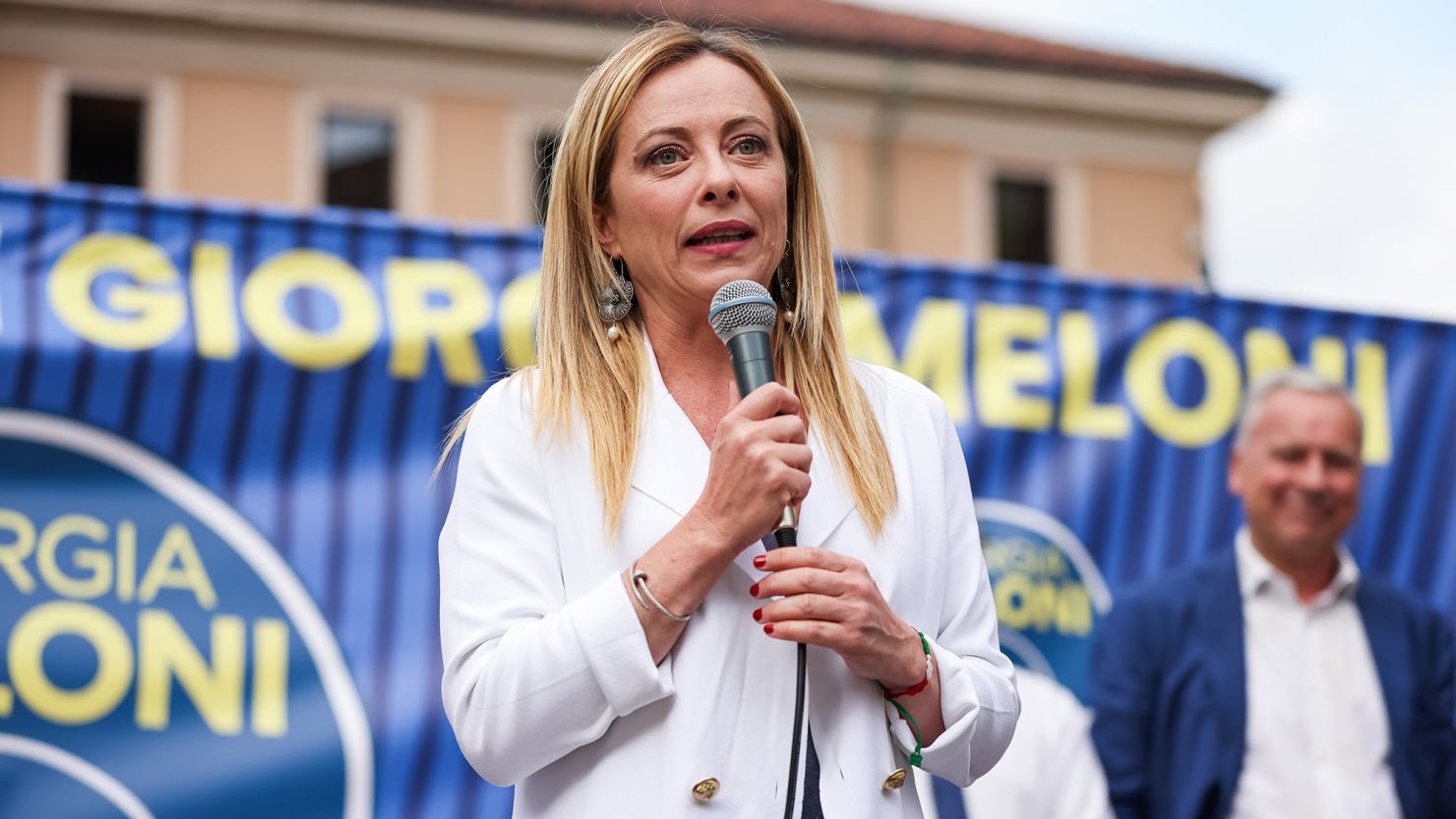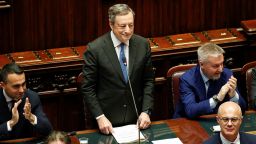Editor’s Note: Francesco Galietti is the founder of Policy Sonar, a Rome-based political risk consultancy. He has held senior posts with Italian public institutions including the Ministry of Economy and Finance. Galietti is a columnist with the Italian current affairs magazine Panorama. The views expressed in this commentary are his own. Read more opinion on CNN.
I am often asked what Giorgia Meloni – leader of the national conservative Brothers of Italy party, and next prime minister of the country – is really up to.
What comparables should we be looking at? Hungary, Poland, Brazil and even the United Kingdom (not to mention the United States under Donald Trump) are all countries where the “destra” or “right wing” seized power at least in part on the back of nationalist sentiment.
But 45-year-old Meloni, who is on course to become Italy’s youngest and first female prime minister after claiming victory in Sunday’s election, does not fit into neat definitions. Her meteoric rise is perhaps best described as an audacious balancing exercise.
On the one hand, Meloni has attempted to brush away the post-fascist aura of her party, whose past includes political operators who were self-admittedly fascist or felt nostalgic about Benito Mussolini. On the other hand, she has been blowing kisses to capital markets, pledging to stick to the fiscal discipline and European Union budget rules of outgoing prime minister and staunch Euro-Atlanticist, Mario Draghi.
Despite her young age, Meloni has been in politics for quite some time. In 2008, she got her baptism of fire, serving as minister of youth under Prime Minister Silvio Berlusconi. The cabinet position she held back then was a relatively minor one, but the consensus was that Meloni was being groomed for power.
At the time, I was a young consigliere at the Italian Treasury, and I felt that perhaps there was more to Meloni. She looked as if she had literally consecrated her life to politics; it seemed more a vocation for her, a calling, than a profession. Because of this, she did not strike me at all as another protégé of a party leader trying her hand at government.
Years later, in 2021, Meloni’s autobiography came out. I rushed to buy a copy. In vivid detail, the book explains how painful Meloni’s youth was, and how important it was for her to become a party militant. Meloni’s father had abandoned both her and her sister Arianna, and the right-wing Italian Social Movement filled this gap. (She later helped found the breakaway political movement Brothers of Italy).
Learning about Meloni’s upbringing, I thought that my earlier impressions were somewhat confirmed: The trauma of a lost father put Meloni on a mission to seek a sense of purpose. All of a sudden, Meloni looked like Bruce Wayne, who embarked on a journey to become Batman after his parents’ assassination. And yet, Batman is a vigilante who sets out to rid the streets of Gotham City of its many villains, whereas Meloni flirted several times with the idea of becoming the mayor of her city, Rome, but never actually went for it.
In 2016, Meloni first threw her hat into the ring but eventually pulled out from the mayoral race. In 2021, Meloni again did not step up, instead backing right-wing candidate Enrico Michetti, who lost out to Roberto Gualtieri of the center-left Democratic Party. It is generally assumed that if Meloni herself had run in the 2021 race, the chances of success of the right would have been very high. So why then hasn’t she gone for it? After all, Rome isn’t like any other Italian municipality and enjoys global visibility like few other cities in the world. Did Meloni deliberately decide to “sacrifice” Rome to play the long game?
There is little doubt that Meloni’s rise in polls reflects widespread disgruntlement and protest votes, which in Italy we have seen at least since 2013. In fact, this was already the case with anti-establishment parties such as the Five Star Movement and Matteo Salvini’s League of recent years. Not unlike them, Meloni’s Brothers of Italy party has risen very quickly in the polls, from single-digit levels to around 25%.
Meloni’s timing looks better than previous upstarts. In fact, if one considers the overall conditions of Italy’s right these days, Berlusconi, who will turn 86 later this week, is not going to play in the sandbox for much longer. Moreover, Salvini’s limits are clear and his “pivot to Russia” stance have made him politically radioactive, after President Vladimir Putin’s invasion of Ukraine. This means that Meloni cannot only dream of becoming Italy’s first female prime minister – but also of consolidating Italy’s conservative bloc.
Both tasks will probably require keeping moderates on board, and bringing in new ones. Just how serious is Meloni about all this? Meloni is still actively using her nativist, anti-woke storytelling repertoire. She also rallied to populist Hungarian Prime Minister Viktor Orban’s side earlier this month, when the European Parliament voted to denounce the “existence of a clear risk of a serious breach” by Hungary of core EU values.
But Meloni also isn’t afraid of normalizing her party, and she could follow the example of her former boss and mentor Gianfranco Fini. In 2003, Fini chose to normalize his party’s relations with Israel and made a highly symbolic visit there. Arguably, back in the day, this move was not received well by some of Fini’s supporters. And yet, it changed the party’s perception for good.
Today, Meloni routinely describes Moscow’s invasion as an “unacceptable large-scale act of war by Putin’s Russia against Ukraine,” and advocates sending weapons to the government in Kyiv. Indeed, with the wind in her sails, Meloni is messaging a larger public, both to woo potential voters and to calm eventual critics. In fact, she knows that without a strong Atlanticist stance it would be impossible for her party to run the country these days. Meloni, moreover, seems to have a flowing dialogue with the outgoing prime minister and hugely respected former president of the European Central Bank, to the point where we have already seen insinuations that Draghi has become Meloni’s own “leadership coach” and guarantor.
Of course, as is often the case with Italian politicians who are touted for top jobs, Meloni is quite the charmer – so many are convinced they have an “exclusive” dialogue with her. Draghi-ites are confident that, given the chaos around Italy, they have Meloni’s ear, and that this will be the case for some time.
And yet, Steve Bannon, the global alt-right guru, also regularly chats with Meloni. In an effort to help Meloni tell her story, Bannon just rolled out an unprecedented Italian franchise of his “War Room” show. Inevitably, this warrants the question: Who is the real Meloni? Is she the responsible party leader who has been on an evolutionary path to morph Brothers of Italy into a post-populist party, or Viktor Orban’s friend in Rome? Only time will tell.
In the meantime, the biggest test to understand if Meloni actually wants to protect Draghi’s legacy will be the appointment of Italy’s next finance minister. Will she propose someone from Draghi’s old guard for this job? All eyes are on Meloni.
This story has been updated with initial balloting results


